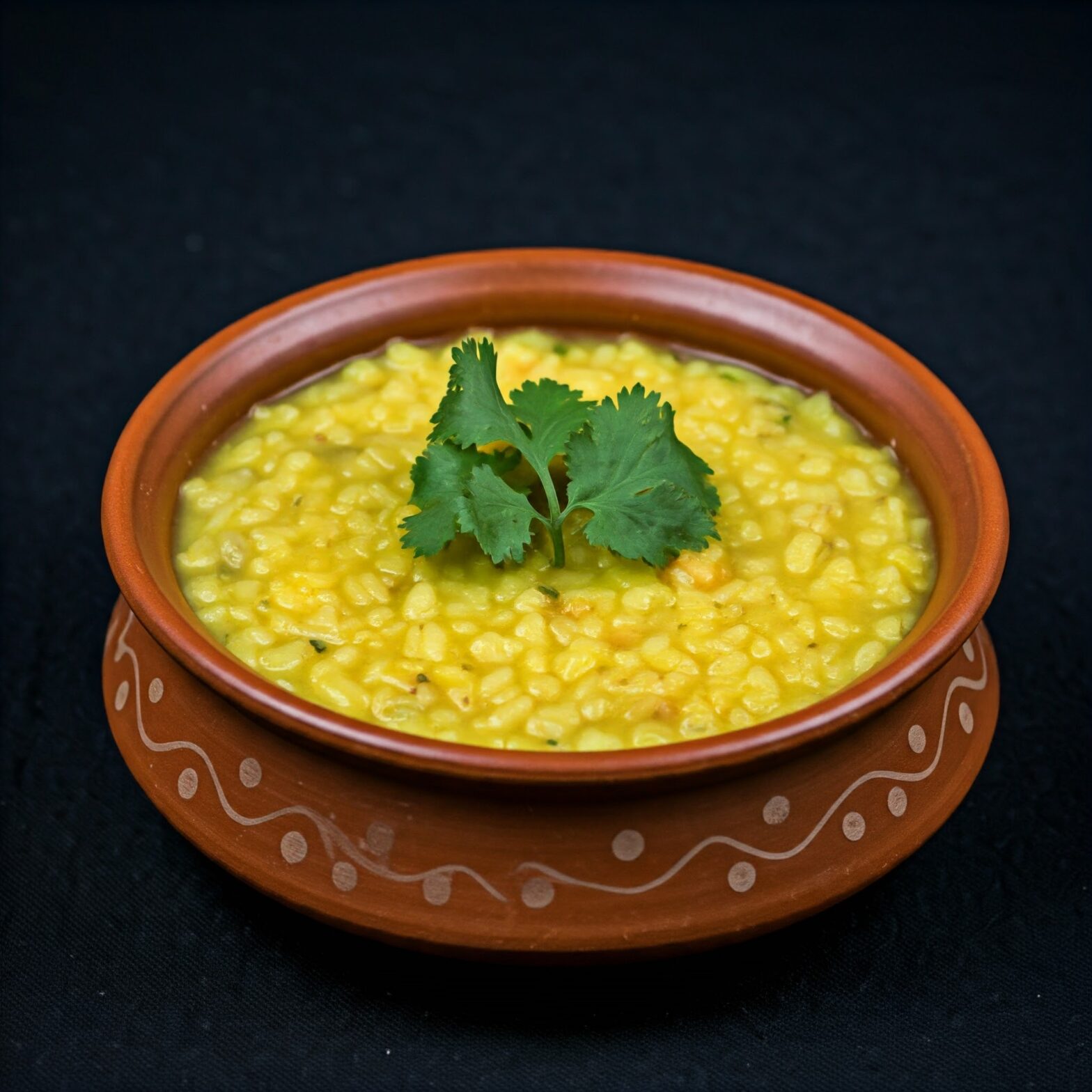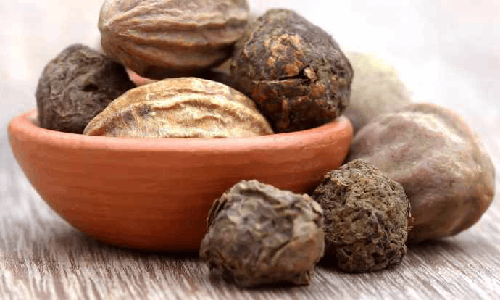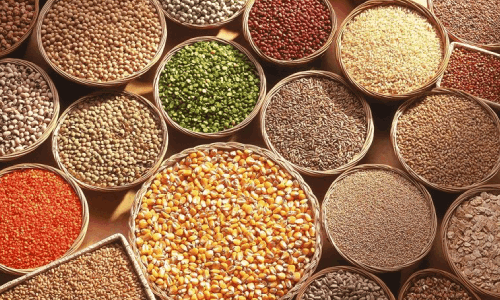Once a staple Ayurvedic food, Khichdi (so-called ‘kitchari’ on the internet) has become the trendy new superfood for detoxification, weight loss, and digestive healing. But like many health fads, it has some truths and myths. There are many health benefits of Khichdi, but many of our beliefs regarding Khichdi have been exaggerated and misunderstood. So, what does it offer, and what are some of the myths we can bust along the way? Let’s explore! What is Khichdi (‘kitchari’) ? Khichdi is a dish made of lentils, rice, spices, vegetables, and ghee. It is a comforting, easily digestible dish that makes it a great dinner option. Everyone calls it the ideal detox food, but there is more to Khichdi than that. Khichdi or ‘Kitchari’ – What’s in a Name ? Let’s start with the name because it’s a bit of a mix-up! Traditionally, the term in ancient Ayurvedic texts is Krsara. In Hindi, it’s known as Khichdi, a comforting, nourishing dish loved throughout India. But then came Kitchari—a name popularised online, though it’s not quite the traditional name. Where did it come from? We don’t know. After finishing six years of college, I started reading about Ayurveda online for the first time. I was surprised to see the word ‘Kitchari’ everywhere as a name synonymous with Ayurveda. Going through my textbooks all again, I realised how much online content and Western Ayurvedic books diverged from traditional sources. They all mention ‘Kitchari’ but the information is often inaccurate. Myth #1 : Basmati Rice is the Best Choice for Khichdi By far the highest myth regarding Khichdi (‘kitchari’) is that Basmati rice is the perfect rice for Khichdi. People seek basmati rice for its pleasant fragrance and long grains. But Ayurveda considers it the most inferior quality of rice. People consider basmati to be light and dry, lacking the grounding and nourishing qualities needed for proper digestion and balance. Ayurveda prefers sona masoori rice for its grounding and nourishing properties. Sona Masoori is medium-grain rice richer in fiber and is closer to the Ayurvedic approach of keeping the Agni or digestive fire balanced. This is necessary for nutrient absorption. Myth #2 : Any Oil Can Be Used to Make Khichdi Coconut oil is heavy, cold and difficult to digest. Khichdi, a light food, cooks best in ghee. Ghee is nourishing and considered as good fat. I don’t know why modern Ayurvedic texts associate coconut oil with Kerela and Ayurveda. Yes, it grows here in abundance and has numerous benefits, but coconut oil is not to be consumed internally if you must keep your digestion perfect. MYTH #3: Khichdi is the Only Ayurvedic Cleansing Food Khichdi is excellent as a mono diet for detoxification. However, it is not the only choice that Ayurveda recommends. There are a variety of food options and you must choose the best based on your Dosha imbalances, Prakriti (body constitution) and health needs. Myth #4 : Khichdi is Ideal for Weight Loss No doubt, Khichdi can help with weight management but it’s not a miracle cure for weight loss. It is a low-calorie dish and helps digestion, which can indirectly contribute to losing weight when combined with a balanced lifestyle. However, focusing solely on Kitchari to lose weight may overlook other crucial aspects like exercise, balanced hydration, and an overall healthy lifestyle. It’s about long-term changes, not just a temporary diet fix. Myth #5 : Khichdi Has to be Boring and Bland It is a great meal choice for those recovering from an illness or having some sort of digestive discomfort, however, it does not need to be boring and tasteless. Ayurvedic Khichdi contains many spices, including cumin, ginger, asafoetida and turmeric, which make it a delectable dish. Each spice has a function, ranging from helping in digestion to absorption of nutrients. Myth #6 : You Can Eat ‘Kitchari’ Every Day Without Consequence It is safe for almost everyone and has a positive influence on health, but is typically recommended for specific periods or circumstances—such as during detox cleanses, illness, or digestive upset. If your body requires some variation or different nutrients, eating it every day can cause imbalances. You should listen to your body when it comes to food, and mix up what you eat to ensure that you cover the whole range of nutrients over time. MYTH #7 : Khichdi is Ideal for All Dosha Types Khichdi is a Dosha-balanced meal for the most part, but slight adaptations may be necessary to suit the individual body type. For example: Vata types can add more ghee for grounding and warmth. Pitta people should use cooling herbs such as coriander in Khichdi and be careful with black pepper. Kapha people must add some warming spices such as ginger to help stoke the fire. The authentic Ayurvedic Khichdi is light, easily digestible, and suitable for all Doshas, especially Vata. Served fresh and warm, it includes healthy fats to balance the cold and dry nature of Vata types. Myth #8 : ‘Kitchari’ is Just a Food, Not a Complete Health Practice While this is true, Ayurveda has more to say about it. Mindful eating, daily routine (Dinacharya), balanced lifestyle and adequate sleep are just as important as food. While Khichdi supports a gentle reset, its nourishing qualities are amplified when paired with Ayurveda’s other holistic practices. Myth #9 : Khichdi Can Cure Every Disease While Kitchari is therapeutic for digestion, it is not a panacea. Kitchari serves as an aid rather than a cure, supporting digestive strength and allowing the body to focus on healing naturally. Myth #10 : Khichdi can be Eaten Cold It is best enjoyed warm or hot, as it enhances digestion and Agni. Ayurvedic practice tends to reject cold or stale foods because they are harder to digest and cause toxin (Ama) build-up in the body. Warm… Continue reading Khichdi (Kitchari) Facts : Myths & Truths
Khichdi (Kitchari) Facts : Myths & Truths



